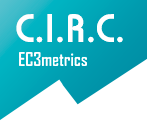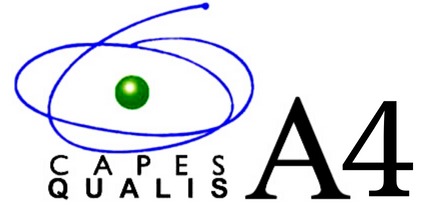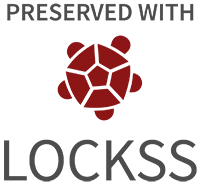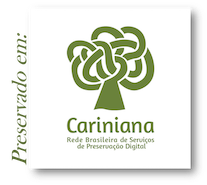About the Journal
ISSN 1980-0096.
Aims and Scope.
The main purpose of the journal is to constitute a virtual space for debate, discussions that result in original ideas and transformative initiatives, It's required originals papers. With this objective we invite everyone to access and contribute to the maintenance of the journal through the publication of unprecedented articles, reviews, translations and historiographic documents authored by master's, masters, doctoral students and doctors. The articles are grouped in dossiers or free themes.
We rely on the continuous flow publication model (Ahead of Print) , that is, once the text is approved for publication, it will be made available within 30 days on our website, and the author does not need to wait for the closing of an edition to have his text published. The edition does not have sequential pagination; texts are registered with a unique identification number (elocation-id) that can be used as a reference.
Historical
Agora was created in 2005 by the Graduate Program of the Federal University of Espírito Santo with the objective of creating a journal with an inclusive profile of post graduate students as article proponents. The race for the qualification of journals in the evaluation system of graduate programs has made the most qualified journals in the country almost inaccessible to master's and doctoral students, largely due to the requirement for a doctor to be one of the proponents of the submitted article. Nevertheless, Ágora maintains a policy of high qualification of the periodical in compliance with the best publishing practices.
In 2012, Ágora becomes an electronic magazine in view of the expectations at the time of overcoming the model of printed magazines, becoming headquartered in the platform Periódidos of the Federal University of Espírito Santo - https://periodicos.ufes.br/. In 2020, Ágora started to adopt continuous flow publication with the planning of three annual issues with a quarterly frequency between the issues of the journal. The continuous flow policy aimed to accelerate the publication of articles before the complete composition of the Ágora issues. Scielo recommends continuous flow publication, as "[...] it promotes speed in the communication process and research availability with numerous advantages for users of scientific information: researchers, students, readers, editors and funding agencies".
The trajectory of Ágora Journal reflects the permanent effort with advanced academic criteria of periodic publication of peer-reviewed articles under the management of the journal's editorial board.
Peer Review
Articles and reviews will undergo by pre-selection about the relevance of the texts in relation to the thematic proposal of the journal. Once accepted in the pre-selection. Upon consideration of the theme addressed, the papers will be forwarded to two evaluators who will evaluation the treatment, clarity of writing and the correctly with the journal's rules. The decision can be:
- Recommend the publication, with or without suggestions (it is up to the author to accept or not);
- Approve by means of reformulation, which implies sending the text to the referee after the changes made by the author;
- Refuse publication.
Revista Ágora hopes to provide authors with a response about the publication within a maximum period of six months. If the deadline is not met, the author must contact the journal via email at revistaagoraufes@gmail.com.
In the case of two conflicting opinions, the paper will be sent to a third referee. It should be noted that the opinions are confidential and impartial, since the names of the authors of the texts (and their institutional affiliation) are not disclosed to the reviewers. To achieve a "double anonymous (blind) evaluation by peers", in the choice of reviewers, the editors will seek to avoid possible conflicts of interest. It is possible to monitor the rate of article acceptances, as well as rejections, to verify the effectiveness of the criteria required from the authors.
The evaluation is directed to the article, so the credentials of the authors are not relevant. The reviewers have no knowledge about the authors. Any appeal must focus on the quality of the criticism presented in the evaluation and the anonymity of the evaluators is imperative. The final decision rests with the editorial board, which will be guided by good practices recommended by bodies such as COPE.
The reviews will undergo an evaluation, carried out by the editor or members of the editorial board of the journal, regarding the treatment of the theme addressed, clarity of the wording and agreement with the proposals of Ágora Journal. For the evaluation of the dossier texts, each organizer will set up, together with the Editorial Board, a commission that will involve the organizers, the magazine's advisers and ad hoc reviewers.
In compliance with good publishing practices, Revista Ágora receives a critique, or commentary, of an article previously published in the journal. Critiques should be reasonable and not contain libellous or defamatory content. Critiques should have evidence or data to support the claims. The possibility of an ethical response to the author of the criticized article is open. The article will be published in a specific section named post-debate.
Plagiarism Detection Policy
In the submition, it is mandatory to check for signs of plagiarism using the CopySpider® Software, available at http://www.copyspider.com.br/main/ , and send us the report showing that the article has a maximum of 3% similarity with other files (and justification if greater than 3%).
Periodicity
Ahead of Print.
Open Access Policy
Ágora Jounal is an open access journal. All works are licensed under Creative Commons 4.0. Every scientific and academic community has unrestricted access to the contents; works can be downloaded, printed, read, cited, taking into account that no tax or fees are charged for submission, peer review, publication and distribution or internet availability. Link: CC BY-SA 4.0.
Copyright Policy
Revista Ágora (Vitória) © 2005 by Universidade Federal do Espírito Santo is licensed under CC BY-SA 4.0
You are free to
- Share — copy and redistribute the material in any medium or format for any purpose, even commercially.
- Adapt — remix, transform, and build upon the material for any purpose, even commercially.
- The licensor cannot revoke these freedoms as long as you follow the license terms.
Under the following terms:
- Attribution — You must give appropriate credit , provide a link to the license, and indicate if changes were made . You may do so in any reasonable manner, but not in any way that suggests the licensor endorses you or your use.
- ShareAlike — If you remix, transform, or build upon the material, you must distribute your contributions under the same license as the original.
- No additional restrictions — You may not apply legal terms or technological measures that legally restrict others from doing anything the license permits.
Notices:
You do not have to comply with the license for elements of the material in the public domain or where your use is permitted by an applicable exception or limitation .
No warranties are given. The license may not give you all of the permissions necessary for your intended use. For example, other rights such as publicity, privacy, or moral rights may limit how you use the material.
Archiving Information
This journal uses the LOCKSS system to create a distributed archival system among participating libraries that allows them to generate permanent journal archives for preservation and restoration.
Archiving Policy
Free preservation services are used for any OJS magazine through the PKP Preservation Network (PKP PN). In addition, CLOCKSS was enabled to store and distribute magazine content in participating libraries.
Indexers
The Ágora journal constantly submitted to national and international indexers for the evaluation of editorial practices. It has currently received approval from
1) catalog 2.0 Latindex : listing of periodicals that comply with the editorial quality editorial methodology.
2) Green Diadorim: allows the storage and access of the pre-print and post-print versions of an article.
3) Summaries
4) Academic Res Copyrights
Fees
Ágora journal does not charge a fee for accessing or submitting papers and reviews, nor does it accept charges from its readers or authors.
Institutional Repository
All papers to be deposited in an institutional or other repository of the author’s choice without embargo. The journal is accredited by DIADORIM in order to provide a tool for storing articles.
Copyrights
Revista Ágora (Vitória) © 2005 by Universidade Federal do Espírito Santo is licensed under CC BY-SA 4.0
Sponsor






















